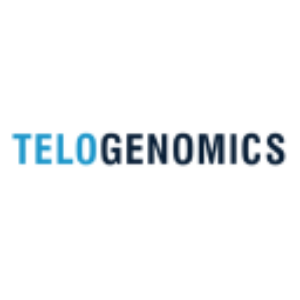Telo Genomics Assessing MRD Status in TELO-DMRD Study
Rhea-AI Summary
Telo Genomics Corp. (TSXV: TELO) (OTCQB: TDSGF) is evaluating its minimal residual disease (MRD) biomarker assay in multiple myeloma patients as part of the TELO-DMRD clinical validation study. The company is collaborating with McGill University and using Adaptive Biotechnologies' clonoSEQ assay to validate the sensitivity of its MRD assay. The study aims to develop two prognostic tests for monitoring myeloma MRD:
1. Identify and quantify MRD cells in blood post marrow transplantation
2. Profile isolated MRD cells using Telo's proprietary TeloView technology
These liquid biopsy-based tests are designed to assess disease aggressiveness in individual MRD cells. The initial evaluation includes up to ten patients, with potential for expansion based on results.
Positive
- Collaboration with McGill University for clinical validation study
- Utilization of industry-leading clonoSEQ assay technology for validation
- Development of two potential prognostic tests for monitoring myeloma MRD
- Liquid biopsy-based tests at the forefront of precision medicine
- Potential to become a valuable clinical prognostic tool in multiple myeloma and other cancers
Negative
- initial patient sample size (up to ten patients)
- Results and clinical utility yet to be established
- Potential competition from established MRD assessment methods
Toronto, Ontario--(Newsfile Corp. - September 10, 2024) - Telo Genomics Corp. (TSXV: TELO) (OTCQB: TDSGF) (the "Company" or "Telo") a biotech company developing the industry's leading telomere technology platform with diagnostic and prognostic applications measuring genomic instability in oncology, is pleased to announce that it is evaluating its minimal residual disease (MRD) biomarker assay technologies in multiple myeloma (MM) patients as a part of the TELO-DMRD clinical validation study.
Telo's MRD assays are being evaluated utilizing Adaptive Biotechnologies' clonoSEQ assay technology as a component of Telo's ongoing MRD clinical trial, TELO-DMRD (NCT05530096), being conducted with McGill University, Montreal, Canada. Telo will utilize clonoSEQ® assay technology to validate the sensitivity of its MRD assay and help to establish the clinical utility of TELO-DMRD for MRD enumeration. McGill is participating in the development of two MRD assessment prognostic tests with Telo Genomics.
Telo's announced MRD evaluation study conducted with Adaptive Biotechnologies is planned to include up to ten patients that will be followed up over time. The study is open to expansion based on initial results. The first patient samples have already been analyzed.
Telo's MRD clinical trials with McGill University have two objectives that will potentially enable the development of two prognostic tests for monitoring myeloma MRD. The two objectives include: i) identify and quantify the number of MRD cells circulating in the patient's blood post marrow transplantation; and ii) profile the isolated circulating MRD cells using Telo's proprietary technology TeloView to assess disease aggressiveness in each individual MRD cell. The two MRD tests are designed to be liquid biopsy-based, which is at the forefront of precision medicine.
"We are thrilled to use clonoSEQ in our study to validate the sensitivity of our MRD assay," said Jay Wohlgemuth, MD, Managing Partner of Trusted Health Advisors, a strategic advisor to Telo. "clonoSEQ is widely accepted as the MRD industry leader in multiple myeloma with a routinely achieved sensitivity of beyond 10-6 and has gained the trust of the diagnostic community. This ongoing evaluation will potentially set the stage for Telo's MRD genomic instability profiling assay to become a valuable clinical prognostic tool in multiple myeloma and other cancers."
About MRD Assessment
Minimal residual disease (MRD) testing is emerging as an important tool in assessing treatment response and guiding therapeutic decisions in oncology. With advancements in drug development technologies, and a growing emphasis on personalized healthcare, the MRD testing industry is expected to exhibit substantial global expansion in the coming years. The MRD global testing market size is expected to reach USD 4.1 billion by 2032 (Globe Newswire - August 14, 2023).
About TELO
Telo Genomics Corp. is a biotech company pioneering the most comprehensive telomere platform in the industry with powerful applications and prognostic solutions. These include liquid biopsies and related technologies in oncology and neurological diseases. Liquid biopsy is a rapidly growing field of significant interest to the medical community for being less invasive and more easily replicated than traditional diagnostic approaches. By combining our team's considerable expertise in quantitative analysis of 3D telomeres with molecular biology and artificial intelligence to recognize disease associated genetic instability, Telo is developing simple and accurate products that improve day-to-day care for patients by serving the needs of pathologists, clinicians, academic researchers and drug developers. The benefits of our proprietary technology have been substantiated in 160+ peer reviewed publications and in 30+ clinical studies involving more than 3,000 patients with multiple cancers and Alzheimer's disease. Our lead application, TELO-MM is being developed to provide important, actionable information to medical professionals in the treatment of multiple myeloma, a deadly form of blood cancer. For more information, please visit www.telodx.com.
For further information, please contact:
Sherif Louis,
President & CTO
Telo Genomics
416-673-8487
www.telodx.com
Neither the TSX Venture Exchange nor its Regulation Services Provider (as such term is defined in the policies of the TSX Venture Exchange) accepts responsibility for the adequacy or accuracy of this release.
Cautionary Note Regarding Forward-Looking Statements
Certain information contained herein may constitute "forward-looking information" under Canadian securities legislation. Generally, forward-looking information can be identified by the use of forward-looking terminology such as "intends", "will", or variations of such words and phrases or statements that certain actions, events or results "will" occur. Forward-looking statements regarding the clinical efficacy of products, commercial viability of products, use of proceeds, and the ability of the TeloView® platform to deliver personalized medicine resulting in better treatments and outcomes are based on the Company's estimates and are subject to known and unknown risks, uncertainties and other factors that may cause the actual results, level of activity, performance or achievements of the Company to be materially different from those expressed or implied by such forward-looking statements or forward-looking information, including capital expenditures and other costs. There can be no assurance that such statements will prove to be accurate, as actual results and future events could differ materially from those anticipated in such statements. Accordingly, readers should not place undue reliance on forward- looking statements and forward-looking information. The Company will not update any forward-looking statements or forward-looking information that are incorporated by reference herein, except as required by applicable securities laws.
To view the source version of this press release, please visit https://www.newsfilecorp.com/release/222753








